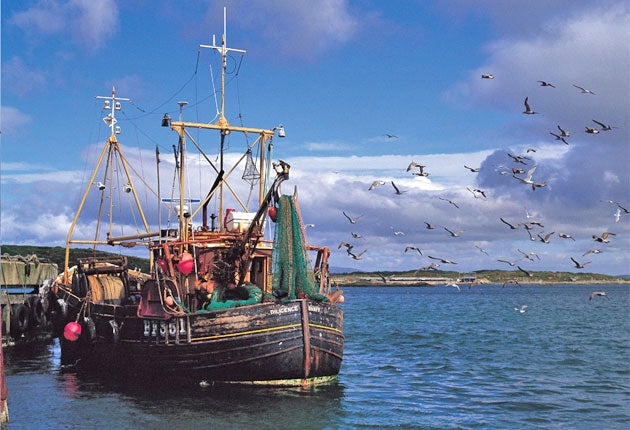Fall in fish stocks far worse than feared, study shows

Your support helps us to tell the story
From reproductive rights to climate change to Big Tech, The Independent is on the ground when the story is developing. Whether it's investigating the financials of Elon Musk's pro-Trump PAC or producing our latest documentary, 'The A Word', which shines a light on the American women fighting for reproductive rights, we know how important it is to parse out the facts from the messaging.
At such a critical moment in US history, we need reporters on the ground. Your donation allows us to keep sending journalists to speak to both sides of the story.
The Independent is trusted by Americans across the entire political spectrum. And unlike many other quality news outlets, we choose not to lock Americans out of our reporting and analysis with paywalls. We believe quality journalism should be available to everyone, paid for by those who can afford it.
Your support makes all the difference.The dramatic decline of fish stocks around the British Isles is highlighted by a study showing that fishing fleets today have to work 17 times as hard to catch a given amount of fish than the largely sail-powered vessels of the late-19th century.
In 1889, Britain's fishing fleets were landing twice as much fish as today's advanced vessels; this catch rose to a peak in 1937 when fishing vessels in England and Wales landed more than 14 times as much by weight as the average annual catch of today.
Scientists said that data gathered since the 1880s, when records began, showed a dramatic collapse in stocks of cod, haddock, ling, halibut and other commercial species of fish.
"For all its technological sophistication and raw power, today's trawl fishing fleet has far less success than its sail-powered equivalent of the late-19th century because of the sharp declines in fish abundance," said Ruth Thurstan of York University, the lead author of the study published in the journal Nature Communications.
"We have to take past changes into account and sometimes it's very hard, particularly with the marine environment, to understand what changes have occurred," Dr Thurstan said.
As fish stocks have declined, the "fishing power" of the fleet has increased thanks to improvements such as lighter fishing nets, radar for tracking fish shoals and high-powered engines for making longer journeys out to sea. Yet for many species, stocks have fallen dramatically, by more than 90 per cent in some cases – as has the average size of the fish landed.
Professor Callum Roberts, who led the study, said: "This research shows that the state of UK bottom fisheries, and by implication European fisheries since the fishing grounds are shared, is far worse than [we had thought]."
Assessments of fish stocks go back only 20 or 40 years, which means that the management targets based on them are incomplete: a more realistic assessment should look at the past 100 years or more, Professor Roberts said. "These results should supply an important corrective to the short-termism inherent in fisheries management today," he said.
Join our commenting forum
Join thought-provoking conversations, follow other Independent readers and see their replies
Comments